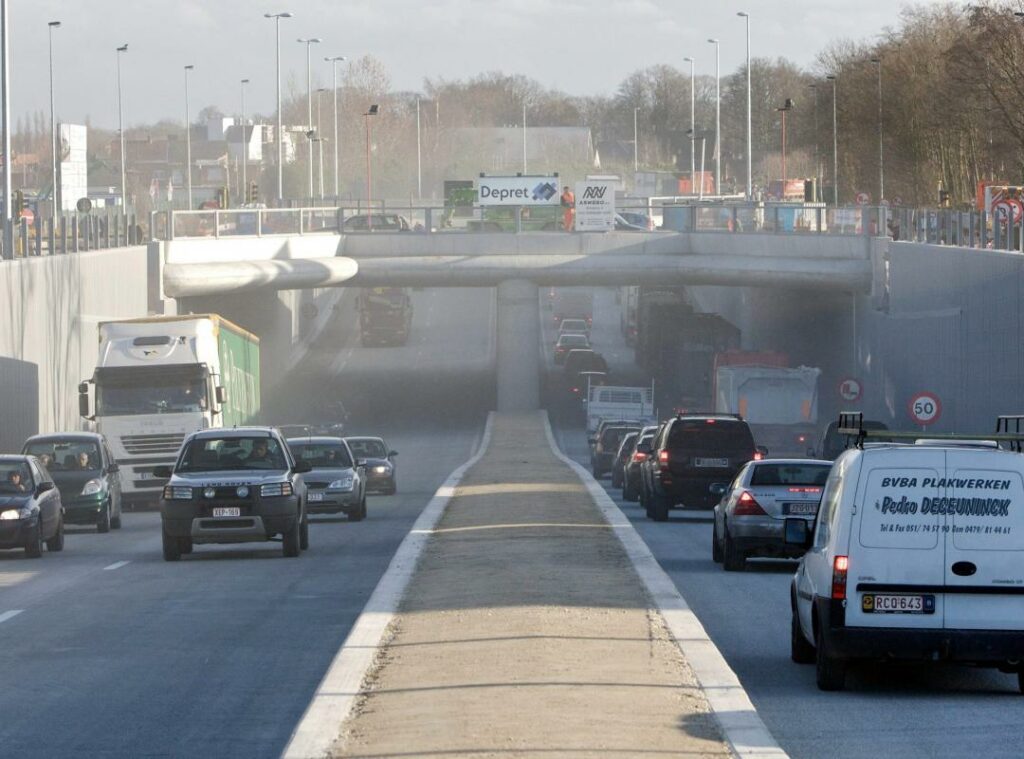The Court of Appeal in Brussels confirmed on Tuesday that the Flemish government does indeed have to pay penalties for not respecting European regulations on air pollution, as was initially ruled this past December.
The court set the official amount at €850,000, or the sum of €1,000-per-day fines for each day that Belgium failed to produce a better plan to tackle its air pollution problems.
"We are not going to court to get fines but to remind policymakers of their duty and force change," Joeri Thijs, Mobility expert at Greenpeace, said in a statement.
The organisation said it will use the €850,000 in penalty payments to establish a fund for supporting local projects that result in better air quality and a healthy living environment. "The government is not protecting us enough, so we are stepping up."
Je moet blijkbaar blijven procederen om milieu- en gezondheidsregels af te dwingen.🤦
Hof van Beroep bevestigt dwangsommen #VlaReg wegens falend luchtkwaliteitsbeleid: al minstens 850.000€. En nog steeds geen ambitieus plan op tafel.🤷@Zu_Demir 👉https://t.co/YiwK7OYO4G pic.twitter.com/MAjL80Z41W — Joeri Thijs (@JoeriThijs) May 24, 2022
Tweet translation: "Apparently, you have to keep on litigating to enforce environmental and health regulations. The Court of Appeal confirms penalty payments to be paid by the Flemish government for failing air quality policy: already at least €850,000. And still no ambitious plan on the table."
The end result of a long-running lawsuit
Greenpeace began its lawsuit nearly five years ago, arguing in September of 2017 that the Flemish government was doing too little to protect its inhabitants against unhealthy air pollution – more specifically, against the permanent exceeding of the European standards for nitrogen dioxide (NO2).
“Almost five years have passed since our original notice of default and the Flemish government has still not implemented a sufficiently ambitious air action plan,” Thijs said.
“A real shame when you know that in our country more than 7,500 people die prematurely every year as a result of poor air quality. Our lungs, the climate and nature now need bold policies that make our mobility healthier, more sustainable and more inclusive.”
Healthy Air Fund to support environmental initiatives
Using the penalty money, Greenpeace is setting up the Fonds Gezonde Lucht (Healthy Air Fund) to support action groups and associations with local projects that improve air quality and make the living environment healthier.
Related News
- Greenpeace protests against TotalEnergies in Antwerp
- Greenpeace wins court case against Flemish government
- Greenpeace blocks Russian oil tanker in Norway
The Flemish government approved an addendum to its air policy plan in March of 2022, which it says addresses the plan's shortcomings over which it was sued.
But Greenpeace says the addendum isn’t sufficient: “The addendum still does not provide clarity on how the government will respect the NO2 standards in the short term and thus respect the original ruling from 2018,” said Thijs.
“We will still consider further steps. It is painful that in our country you apparently have to litigate persistently to ensure that our government complies with regulations to protect our health and the environment.”

